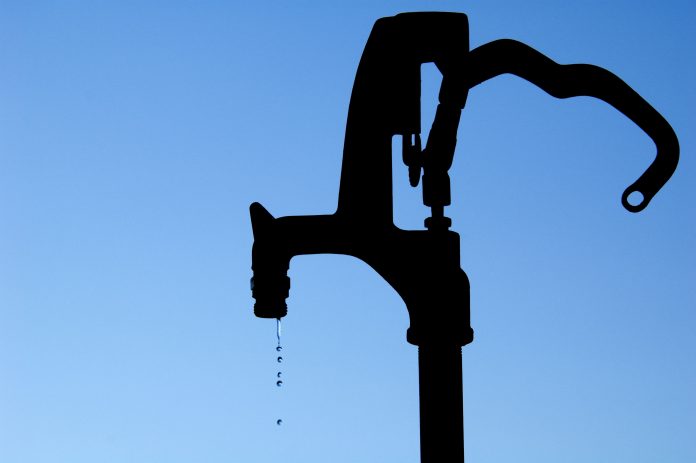Darío Soto-Abril, Executive Secretary of Global Water Partnership and Johannes Cullmann, Director for Water and Cryosphere at the World Meteorological Organization, state the world is facing a global water crisis and share their views on what we can do to avoid ‘Day Zero’
During the Cape Town water crisis from 2015 to 2018, the impending “Day Zero” marked the day when the municipality would have run out of water. The population was already waiting in long queues for their daily water ration. Fortunately, “Day Zero” was just averted, but the crisis stands as a bad omen for many societies around the world, according to the findings of the latest report on climate and water from the World Meteorological Organization (WMO), Global Water Partnership (GWP), and other partners.
Over one in four people live in countries affected by water stress (1), and by 2050, more than 5 billion people might suffer from water scarcity, threatening 45% of the world’s economy. The problems include an insatiable demand fuelled by inefficient water use; a shrinking supply of freshwater resources due to climate change effects (such as glacier melting, salinization of groundwater and increased evapotranspiration); mismanagement of environmental resources; and a lack of understanding that water is an economic commodity as well as crucial for environmental health and services.
Climate change
In addition to increasing global water stress, climate change increases the magnitude and frequency of water-related extreme events like floods and droughts. Over the past 20 years, floods have increased by 134% and droughts by 29%. The impacts of water scarcity and disasters are, however, not distributed evenly around the globe. But no matter where they happen, they affect vulnerable populations disproportionately, such as women, youth, the elderly, and the disabled.
Water crises can only be eased if water is treated as a top priority by international climate policy-makers and if countries manage their water resources in an integrated way. Most countries accept this fact at least if we look at their Nationally Determined Contributions (NDCs) that have been submitted in line with the Paris Agreement.(2) According to the United Nations Framework Convention on Climate Change, water is an adaptation priority in 80% of those NDCs. On the other hand, in a survey by GWP and partners, 65 of 170 countries surveyed are far from their target to reach their water management related targets within the Sustainable Development Goals by 2030.(3)
Managing water sustainably
To turn the tide and manage water sustainably now and under increasing future pressures, we need more knowledge about the availability, storage and demand for water. The Water and Climate Coalition, a community of multi-sectoral actors guided by high- level leadership and focused on water action, is forging strong political leadership for this cause. Ahead of the 2021 United Nations Climate Change Conference (COP 26) in Glasgow, Scotland, the founding members of the coalition, nine U.N. organisations and GWP, sent a letter to Heads of State with a call for “Accelerated action […] to address the water-related consequences of climate change that impact people and the planet.” The letter urges leaders to integrate water and climate agendas at a national level through adaptation and resilience planning, and by promoting a proactive approach to flood and drought management.
Strengthen joint water actions
We invite local non-governmental organisations and governmental as well as international organisations to contribute to the efforts of the Water and Climate Coalition, to coordinate and strengthen joint water actions. One example of joint action is that both our organisations are supporting countries in their efforts to manage the two most devastating water extremes, floods and droughts: the flood (APFM) and drought (IDMP) programmes are networks of organisations from local to global levels, which together provide support to mitigate the risks of these disasters.
These efforts need to be accelerated and massively scaled up in order to leave no one behind. However, there is still a lack of political will to commit enough resources to efforts that lead to more knowledge for informed decision making that will result in better, more efficient, and more sustainable water resources management. We urge politicians around the world to set water as a priority in their agenda, not only on paper but by truly investing in improved water management, rather than simply disaster recovery, and join forces with the Water and Climate Coalition.
We imagine political leaders would be the first to take action if they had to wait in line for water as Day Zero approaches in their countries – which they may have to do sooner than they think.
References
- (1) FAO and UN-Water. 2021. Progress on Level of Water Stress. Global status and acceleration needs for SDG Indicator 6.4.2, 2021. Rome. The level of water stress is defined as the ratio between total freshwater withdrawals by all economic activities and total available freshwater resources, after considering environmental flow requirements. Environmental flow requirements are essential to maintaining ecosystem health and resilience. When an area has a level of water stress of 25% or more it is said to be ‘water-stressed’.
- (2) UNFCCC. 2021 Nationally determined contributions under the Paris Agreement, Revised synthesis report by the secretariat. https://unfccc.int/documents/307628.
- (3) UN Water and UNEP: Progress on Integrated Water Resources Management – 2021












From these great insights into the core issues of global water crisis, I take away 3 key messages:
1. Need to manage water in an integrated manner
2. Need to be proactive in regards to floods and droughts planning, adaptation and resilience
3. We need to join hands together as community of water and urge governments in developing countries to prioritise water and allocate resources for disaster risk reduction activities.
Thank you.